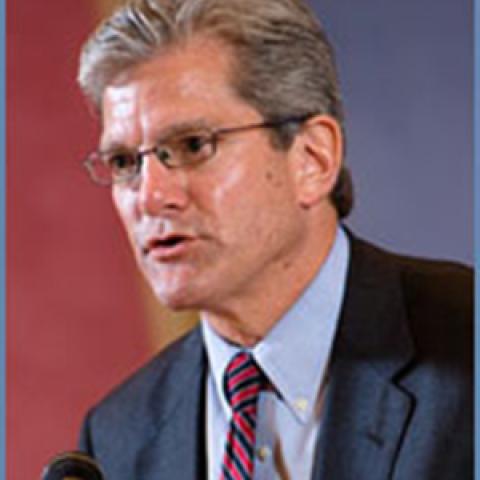Sometime this past Summer, Eric Isaacs, president of the Carnegie Institution for Science, issued a formal apology for his organization’s role in the eugenics movement of the early 20th Century.
As he pointed out, Carnegie’s involvement began in 1902, when zoologist Charles Davenport “received Carnegie support to establish a ‘Biological Experiment Station for the study of evolution,’” and ended “by 1944.” (At the time, it was known as the Carnegie Institution of Washington.)
Actually, “received Carnegie support” is something of an understatement. In fact, Davenport was a department head at Carnegie, and duly contributed chapters to its annual reports. He also established Carnegie’s Eugenics Record Office, which would become the highly effective lobbying hub for laws to sterilize the “unfit,” as well as restrictions on immigration of “inferior peoples.”
Nonetheless, Isaacs’ apology was explicit and unabashed. Here’s the relevant portion of his statement:
There is no excuse, then or now, for our institution’s previous willingness to empower researchers who sought to pervert scientific inquiry to justify their own racist and ableist prejudices. Our support of eugenics made us complicit in driving decades of brutal and unconscionable actions by governments in the United States and around the world. As the President of the Carnegie Institution for Science, I want to express my sincere and profound apologies for this organization’s past involvement in these horrific pseudoscientific activities.
A long way
The Carnegie Institution has come a long way over the past decade. In 2011, I submitted an op-ed to The Chronicle of Philanthropy on the role of American foundations in promoting eugenics. The Chronicle gave Carnegie the opportunity to respond to my charge that it had never formally apologized for its contribution.
Here’s Carnegie’s response, in part:
Carnegie’s involvement with eugenics was terminated in the late 1930s. We are not aware of what has been said about it by Carnegie representatives in the intervening 70 years. We are thus unable to confirm your assertion that there has never been an ‘apology’ by Carnegie. … Eugenics was part of mainstream science at the time of Carnegie’s involvement. We have never hidden our role. We also do not know whether apologies were issued by any of the many other institutions that were involved in this dark period in the history of science.
So, basically: everybody was doing it at the time. Furthermore, don’t expect us to know much about our own history, and whether or not we’ve bothered to apologize in the past. (As I noted in response, apparently philanthropy means never having to say you’re sorry, or even being aware if you did or not.)
Finally, don’t ask us to spend 10 minutes on Google, which would have shown that, by 2011, many institutions were issuing apologies for their parts in eugenics, including most of the state governments that had sterilized upwards of 60,000 “inferior” human beings in the early 20th Century.
Wondering why
So there’s been an enormous improvement in Carnegie’s response. But it still leaves something to be desired. As I say, the apology appeared “sometime” in the Summer—as an undated statement on the Carnegie website, without press release or other fanfare.
Why—with apologies to the ’60s rock group The Grass Roots—the “midnight confession?” Why no thoroughgoing historical account of Carnegie’s involvement, based on records only it has?
Edwin Black—author of an exhaustive history of eugenics entitled War Against the Weak—and I both asked Carnegie for further information on their statement. We were told by the public-affairs office that it had nothing to add. Black subsequently devoted an hour-long podcast to the apology, as well as the refusal to be more forthcoming.
On its “Diversity, Equity and Inclusion” page, Carnegie makes clear that it will reflect on its eugenics involvement as part of a larger effort to create “a workplace that actively opposes racism, discrimination, and harassment.” This includes a DEI committee; diversity training; “thoughtful, active outreach to Black and other underrepresented minority applicants” in the hiring process; “outreach to Black communities” to inspire “new, diverse generations of young scientists;” and—tucked in there—an apology for eugenics.
Understanding the character of eugenics
It seems that Carnegie quietly slipped its “midnight confession” for eugenics into a rather typical organizational initiative to promote diversity, equity, and inclusion—the type of program that has been launched by virtually every major American corporation, government, university, and nonprofit since last Summer.
But to treat eugenics as just another manifestation of omnipresent structural racism—which we are now told permeates American history and continues unabated today—is to misunderstand its character, and to forego learning critical lessons about the dangerous temptations to which American philanthropy is prone.
To be sure, as books with titles like Madison Grant’s The Passing of the Great Race make clear, there was a strong racist element in eugenics. But its white supporters were every bit as concerned about purging their own race of genetic impurities as protecting whites from other races. As Nancy Isenberg argues in White Trash: The 400-Year Untold History of Class in America, eugenics just put a scientific twist on the age-old contempt white elites felt toward also-unnervingly-white “trailer trash,” “rednecks,” “lubbers,” “rubbish,” “clay-eaters,” and “crackers.”
In Buck v. Bell, the U.S. Supreme Court case that ratified eugenics in 1927, defendant Carrie Buck was drawn from the Appalachian “poor white trash” who threatened to undermine the eugenic integrity of Virginia’s racial elite.
Furthermore, eugenics appeared in virtually every nation around the world, no matter its racial composition. Asian and Latin American countries were determined to enhance the genetic integrity of their populations. Gunnar Broberg’s and Nils Roll-Hansen’s edited volume Eugenics and the Welfare State reminds us that it was embraced with particular enthusiasm by the Scandinavian countries, where some 170,000 whites were sterilized (by other whites) over the 20thCentury.
Conversely, many prominent Black leaders championed their own version of eugenics. It “viewed racial difference as insignificant, but adopted more fundamental notions about distinctions between ‘fit’ and ‘unfit’ people,” as Gregory Michael Dorr and Angela Logan argue in an essay entitled “‘Quality, Not Mere Quantity, Counts:’ Black Eugenics and the NAACP Baby Contests,” featured in A Century of Eugenics in America.
They note that this version was “popularized by public intellectuals like W.E.B. Du Bois,” “inculcated among the black elites by educators like Thomas Wyatt Turner,” and “informed the thinking of many upper-class blacks” early in the 20th Century. As the article’s title suggests, the NAACP actually sponsored contests to highlight eugenically superior Black children.
Symptoms and solutions
If racism doesn’t explain fully the attraction of eugenics, what does? For early foundations like Carnegie, Rockefeller, and Russell Sage, eugenics reflected their infatuation with the rapidly developing natural and social sciences of the early 20th Century. Unlike “mere charity,” which had just addressed—expensively and futilely—the symptoms of social problems, science promised to penetrate to their root causes, and solve them once and for all.
Carnegie’s Charles Davenport assailed charity in 1910, wondering why “tens of millions have been given to bolster up the weak and alleviate the suffering of the sick.” Meanwhile, “no important means have been provided to enable us to learn how the stream of weak and susceptible protoplasm may be checked.”
Davenport’s search for “weak protoplasm” responded directly to John D. Rockefeller’s famous wish that his philanthropy be directed to “a search for cause, an attempt to cure evils at their source.”
(By the way, Candid posted that familiar and heretofore unremarkable quote from Rockefeller on Twitter late last year. Several of us pointed out its link to eugenics. Within hours, the tweet quietly disappeared. Candid has yet to explain the significance of its “midnight deletion.” And the Rockefeller Foundation has yet to apologize for its extensive involvement in eugenics.)
Awareness of echoes
It’s important to understand the source of eugenics’ appeal because, while racial animus isn’t likely to drive much American giving in the future, the demand for root-cause solutions will. Noted Matthew Gerken in a recent Philanthropy Daily post, “I can’t count on my hands the number of times I’ve endured individuals (whether nonprofit staff or donors and board members) making demands to ‘attack root causes, as opposed to treating symptoms ….’”
In an age when our knowledge of genetics has advanced far beyond that of the early eugenicists, the siren call of root-cause solutions is unabated. We now have the scientific means to determine and alter the likely genetic inheritance of human beings in utero, and to create “designer babies” according to the preferences of parents and the best guesses of medical professionals.
This echoes the promise eugenics held out a century ago, when it told Americans they could insure superior babies by choosing life partners according to the detailed genetic histories the Carnegie Institution had painstakingly compiled.
But like eugenics, and even without explicit government coercion involved, these new genetic powers bring dangers.
The December 2020 issue of The Atlantic includes an article by Sarah Zhang entitled “The Last Children of Down Syndrome.” She observes that “the decisions parents make after prenatal testing are private and individual ones. But when the decisions so overwhelmingly swing one way—to abort—it does seem to reflect something more: an entire society’s judgment about the lives of people with Down syndrome.” In the United States, she notes, “the best estimate for the termination rate after a diagnosis of Down syndrome is 67 percent.”
With our capacity to attack birth defects at their genetic roots, how long before our “entire society’s judgment” comes down heavily on those who refuse abortion under those circumstances? And can’t we be certain that philanthropy will, with the best of intentions, throw its own weight behind that judgment?
This is made all the more likely by the fact that philanthropy is utterly unaware of its previous infatuation with eugenics, and the lessons to be learned therefrom.
A peculiar dangerous temptation
Students of the nonprofit sector, do this simple test at home: scan the index of any book from your library on American foundations. With the exception of Phil Buchanan’s Giving Done Right, you will fail to find a single mention of eugenics.
And what kind of “positive” genetic projects can we expect from today’s ultra-wealthy donors? After all, they’ve announced that they are prepared to travel to Mars, to bio-engineer our atmosphere to reverse climate change, and even to overcome human mortality.
In 2015, The Washington Post ran an eye-popping article entitled “Tech Titans’ Latest Project: Defy Death.” Larry Ellison, the founder of Oracle, had “proclaimed his wish to live forever and [has] donated more than $430 million to anti-aging research.”
With these sorts of hubristic projects in mind, how can we doubt that they will deploy genetics to produce, at least within the ranks of the wealthy elites, a kind of super-human, leaving the rest of us behind—no doubt to be treated as tomorrow’s crackers, rednecks, and clay-eaters?
This is the appropriate context within which Carnegie should consider its eugenic past. It’s all too easy to slip a quiet apology for eugenics into the sort of vague and all-encompassing confession of racist sin in which every American institution indulges nowadays.
It would be far more valuable for a foundation devoted to science to reflect on eugenics as the dangerous temptation peculiar to scientific, root-cause approaches. It’s a temptation for which American philanthropy has exhibited a particular weakness, and about which it is woefully uninformed.
Read in Philanthropy Daily















